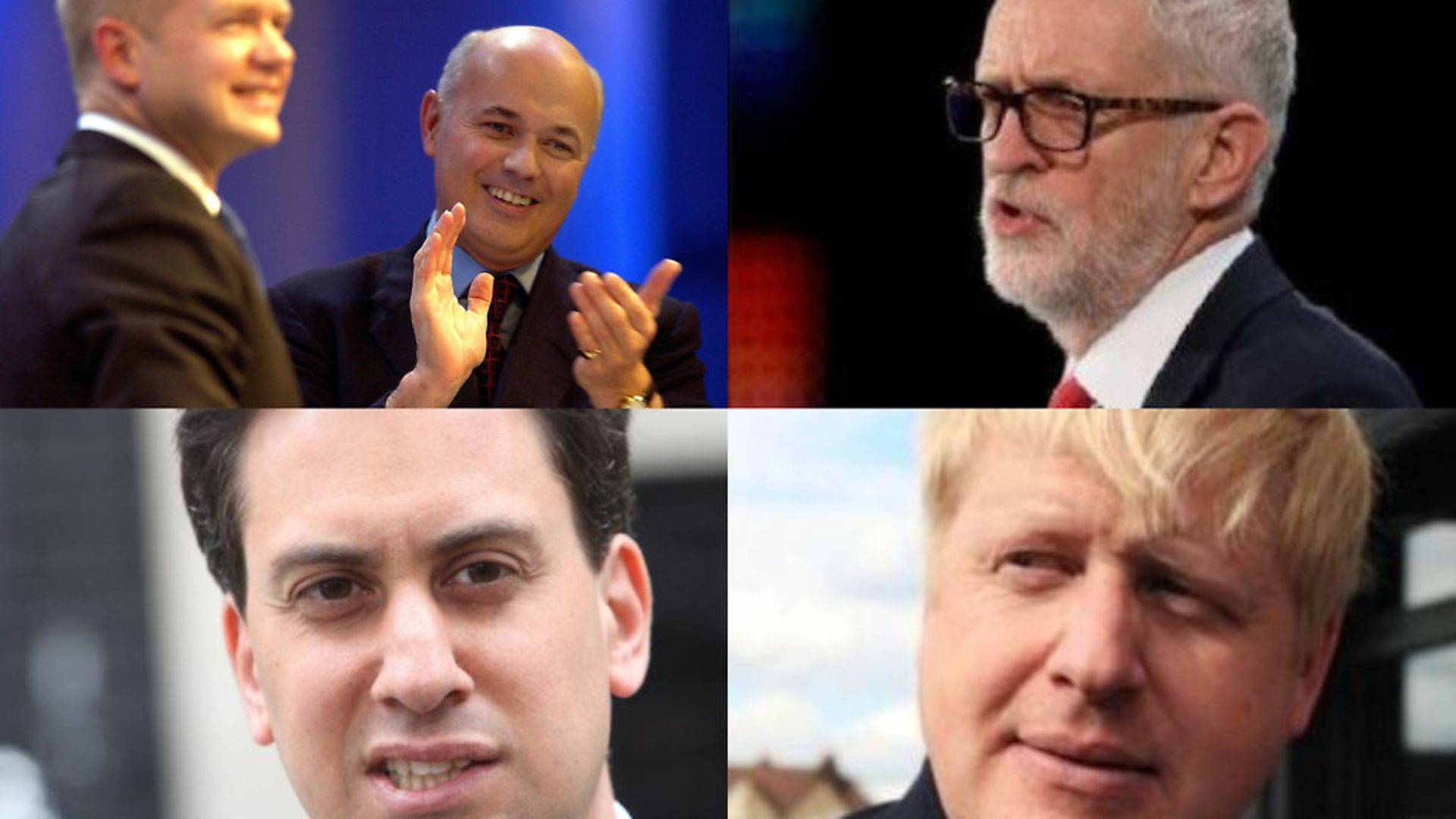
Catastrophically poor national leadership lies behind Brexit and Britain’s other mounting problems – and there’s one factor behind it all, argues Andrew Adonis.
Compare our four – soon to be five – prime ministers of the last 15 years with Germany’s chancellor Merkel and you see it in sharpest relief.
Since Tony Blair, every prime minister has been worse than the last, and Boris Johnson is set to be worst of the lot. Add in the five leaders of the opposition who didn’t/haven’t made it to No.10 – Hague, Duncan Smith, Howard, Miliband, Corbyn – and you get the worst national leadership team for a 20 year period in modern British history. Hence Brexit.
What went wrong? Given the length of time and the sheer collective inadequacy of this group of 10, there must surely be a structural cause. And I think I have worked it out: it was the fateful decision taken by both Labour (in 1983) and the Tories (in 1997) to move from parliamentary democracy to activist democracy in choosing their leaders.
This turned out to be a fundamental constitutional change, and a bad one. The rise of weak leadership is the mirror image of the decline of parliament.
The critical turning points were 2001 for the Tories and 2010 for Labour, when for the first time party activists overruled their own MPs and imposed leaders who were not the choice of parliamentarians.
If MPs alone had chosen Tory leaders since Major, the succession would probably have gone to Ken Clarke, who might well have won the 2005 election. Duncan Smith, Howard and May would be political footnotes, while Johnson would be a joke on Have I Got News For You.
WATCH: Have I Got News For You shares the footage it couldn’t air during Boris Johnson misconduct caseIf Labour MPs alone had chosen leaders after 1983, Kinnock, Smith, Blair and Brown would certainly have been the next four, since they were the choice of MPs as well as activists – a point of significance to my argument, since they were a good leadership group – but thereafter, equally certainly, neither Ed Miliband nor Jeremy Corbyn would have succeeded.
Party leaders, and thereby prime ministers, are now chosen by a tiny, unrepresentative minority of the electorate, and an essentially arbitrary, self-selecting one. Who counts as a party member has no stable or clear meaning, and rule changes can make a decisive difference, as with the £3 members who flooded the Labour selectorate in 2015.
We now have what the political scientist Robert Saunders perfectly describes as “a private, members-only democracy that you have to pay to join”.
In my view there are only two democratically legitimate electorates to choose the head of government: MPs or the whole electorate. Selection of leaders by MPs is democratic in a parliamentary system where MPs are regularly accountable to the voters – and yes, also to party activists, but not to them alone. And a presidential system where the electorate chooses directly, as in France and the US, is also democratic.
Moving to a presidential system would be so great a change to the system that it is probably unattainable even if desirable. So we are now left with a broken parliamentary system. Activist selection of leaders in our first past the post parliamentary system is the worst of all worlds. It is virtually impossible for a new party to dislodge either Labour or the Conservatives in one general election, so Tory and Labour activists can – and are – selecting leaders unattractive to the general public, for ideological or celebrity value, on the basis that they hope they aren’t as unappealing as the leader of the opposing party. A recipe for a race to the bottom.
But it gets worse still. Having transferred the selection of leaders to activists, parliament has, equally foolishly, handed the determination of the most crucial policy in a generation – Brexit – to a referendum without any plan whatever either for Brexit itself or for how it would be taken forward if passed.
We now face the logical endpoint of this wholesale dismantling of parliament: a leader chosen by activists after the abject failure of his two predecessors, posing as an anti-parliament populist and suggesting that the way of resolving a deep national crisis is for parliament to be banned from meeting altogether.
This can’t continue, but it is very hard to put Humpty Dumpty back together again. I now think it possible that Brexit and the parallel crisis of England’s unions with Scotland and Northern Ireland may force a complete political collapse – like France in 1958 – before a leader emerges who can chart a way forward.
In resolving this crisis we should remember one thing constantly: parliament was the genius of the English for building representative and democratic government over eight centuries. We should not dismantle it lightly.









